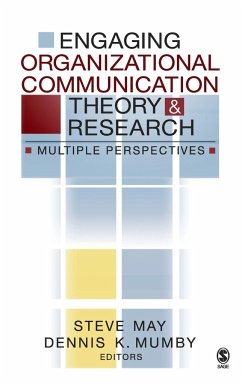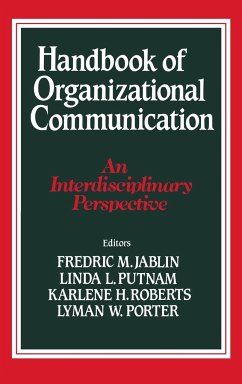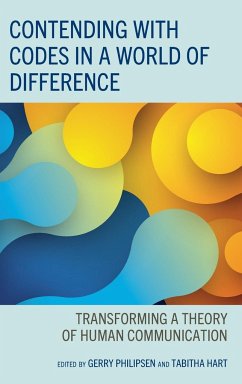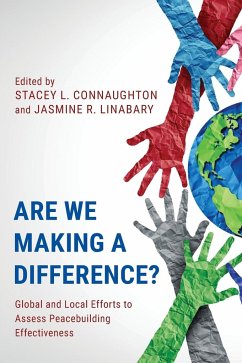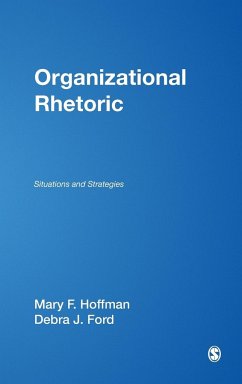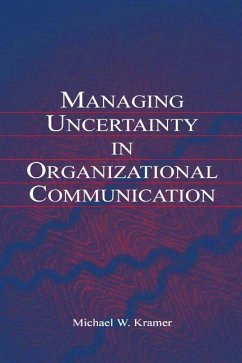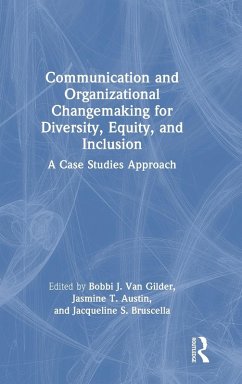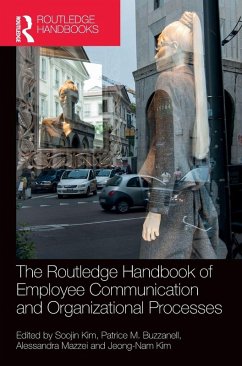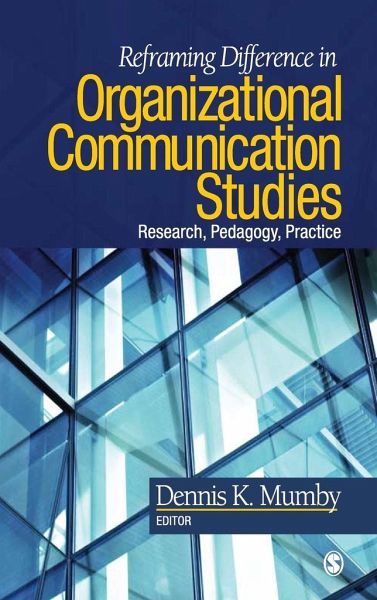
Reframing Difference in Organizational Communication Studies

PAYBACK Punkte
74 °P sammeln!
Bringing together prominent scholars in the field of organizational communication to examine the relationship between difference and organizing, this book explores the concept in a comprehensive and systematic way. Part I explores numerous ways in which difference can be critically examined as a communicative phenomenon; Part II addresses how best to teach difference, including pragmatic recommendations for explaining the topic and making it relevant to students' lives; and Part III broadly examines difference as a central construct in applied organizational communication research. Ultimately,...
Bringing together prominent scholars in the field of organizational communication to examine the relationship between difference and organizing, this book explores the concept in a comprehensive and systematic way. Part I explores numerous ways in which difference can be critically examined as a communicative phenomenon; Part II addresses how best to teach difference, including pragmatic recommendations for explaining the topic and making it relevant to students' lives; and Part III broadly examines difference as a central construct in applied organizational communication research. Ultimately, the book serves to carve out a new agenda for studies of difference and organization, and it challenges instructors and students alike to think about and explore difference in a more complex and productive manner.





